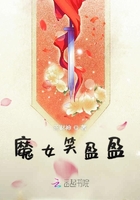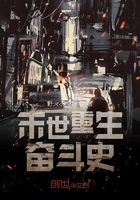The first capitalists found,as we have said,alongside of other forms of labor,wage-labor ready-made for them on the market.But it was exceptional,complementary,accessory,transitory wage-labor.The agricultural laborer,though,upon occassion,he hired himself out by the day,had a few acres of his own land on which he could at all events live at a pinch.The guilds were so organized that the journeyman to today became the master of tomorrow.
But all this changed,as soon as the means of production became socialized and concentrated in the hands of capitalists.The means of production,as well as the product,of the individual producer became more and more worthless;there was nothing left for him but to turn wage-worker under the capitalist.Wage-labor,aforetime the exception and accessory,now became the rule and basis of all production;aforetime complementary,it now became the sole remaining function of the worker.The wage-worker for a time became a wage-worker for life.The number of these permanent was further enormously increased by the breaking-up of the feudal system that occurred at the same time,by the disbanding of the retainers of the feudal lords,the eviction of the peasants from their homesteads,etc.The separation was made complete between the means of production concentrated in the hands of the capitalists,on the one side,and the producers,possessing nothing but their labor-power,on the other.The contradiction between socialized production and capitalistic appropriation manifested itself as the antagonism of proletariat and bourgeoisie.
We have seen that the capitalistic mode of production thrust its way into a society of commodity-producers,of individual producers,whose social bond was the exchange of their products.But every society based upon the production of commodities has this peculiarity:that the producers have lost control over their own social inter-relations.Each man produces for himself with such means of production as he may happen to have,and for such exchange as he may require to satisfy his remaining wants.No one knows how much of his particular article is coming on the market,nor how much of it will be wanted.No one knows whether his individual product will meet an actual demand,whether he will be able to make good his costs of production or even to sell his commodity at all.Anarchy reigns in socialized production.
But the production of commodities,like every other form of production,has it peculiar,inherent laws inseparable from it;and these laws work,despite anarchy,in and through anarchy.They reveal themselves in the only persistent form of social inter-relations ?i.e.,in exchange ?and here they affect the individual producers as compulsory laws of competition.
They are,at first,unknown to these producers themselves,and have to be discovered by them gradually and as the result of experience.They work themselves out,therefore,independently of the producers,and in antagonism to them,as inexorable natural laws of their particular form of production.
The product governs the producers.
In mediaeval society,especially in the earlier centuries,production was essentially directed toward satisfying the wants of the individual.
It satisfied,in the main,only the wants of the producer and his family.
Where relations of personal dependence existed,as in the country,it also helped to satisfy the wants of the feudal lord.In all this there was,therefore,no exchange;the products,consequently,did not assume the character of commodities.The family of the peasant produced almost everything they wanted:clothes and furniture,as well as the means of subsistence.
Only when it began to produce more than was sufficient to supply its own wants and the payments in kind to the feudal lords,only then did it also produce commodities.This surplus,thrown into socialized exchange and offered for sale,became commodities.
The artisan in the towns,it is true,had from the first to produce for exchange.But they,also,themselves supplied the greatest part of their individual wants.They had gardens and plots of land.They turned their cattle out into the communal forest,which,also,yielded them timber and firing.The women spun flax,wool,and so forth.Production for the purpose of exchange,production of commodities,was only in its infancy.
Hence,exchange was restricted,the market narrow,the methods of production stable;there was local exclusiveness without,local unity within;the mark in the country;in the town,the guild.
But with the extension of the production of commodities,and especially with the introduction of the capitalist mode of production,the laws of commodity-production,hitherto latent,came into action more openly and with greater force.The old bonds were loosened,the old exclusive limits broken through,the producers were more and more turned into independent,isolated producers of commodities.It became apparent that the production of society at large was ruled by absence of plan,by accident,by anarchy;and this anarchy grew to greater and greater height.But the chief means by aid of which the capitalist mode of production intensified this anarchy of socialized production was the exact opposite of anarchy.It was the increasing organization of production,upon a social basis,in every individual productive establishment.By this,the old,peaceful,stable condition of things was ended.Wherever this organization of production was introduced into a branch of industry,it brooked no other method of production by its side.The field of labor became a battle-ground.The great geographical discoveries,and the colonization following them,multiplied markets and quickened the transformation of handicraft into manufacture.The war did not simply break out between the individual producers of particular localities.
The local struggles begat,in their turn,national conflicts,the commercial wars of the 17th and 18th centuries.
Finally,modern industry and the opening of the world-market made the struggle universal,and at the same time gave it an unheard-of virulence.
Advantages in natural or artificial conditions of production now decide the existence or non-existence of individual capitalists,as well as of whole industries and countries.He that falls is remorselessly cast aside.
It is the Darwinian struggle of the individual for existence transferred from Nature to society with intensified violence.The conditions of existence natural to the animal appear as the final term of human development.The contradiction between socialized production and capitalistic appropriation now presents itself as an antagonism between the organization of production in the individual workshop and the anarchy of production in society generally.
The capitalistic mode of production moves in these two forms of the antagonism immanent to it from its very origin.It is never able to get out of that "vicious circle"which Fourier had already discovered.What Fourier could not,indeed,see in his time is that this circle is gradually narrowing;that the movement becomes more and more a spiral,and must come to an end,like the movement of planets,by collision with the centre.
It is the compelling force of anarchy in the production of society at large that more and more completely turns the great majority of men into proletarians;and it is the masses of the proletariat again who will finally put an end to anarchy in production.It is the compelling force of anarchy in social production that turns the limitless perfectibility of machinery under modern industry into a compulsory law by which every individual industrial capitalist must perfect his machinery more and more,under penalty of ruin.
But the perfecting of machinery is ****** human labor superfluous.If the introduction and increase of machinery means the displacement of millions of manual by a few machine-workers,improvement in machinery means the displacement of more and more of the machine-workers themselves.It means,in the last instance,the production of a number of available wage workers in excess of the average needs of capital,the formation of a complete industrial reserve army,as I called it in 1845[3],available at the times when industry is working at high pressure,to be cast out upon the street when the inevitable crash comes,a constant dead weight upon the limbs of the working-class in its struggle for existence with capital,a regulator for keeping of wages down to the low level that suits the interests of capital.
Thus it comes about,to quote Marx,that machinery becomes the most powerful weapon in the war of capital against the working-class;that the instruments of labor constantly tear the means of subsistence out of the hands of the laborer;that they very product of the worker is turned into an instrument for his subjugation.
Thus it comes about that the economizing of the instruments of labor becomes at the same time,from the outset,the most reckless waste of labor-power,and robbery based upon the normal conditions under which labor functions;that machinery,"the most powerful instrument for shortening labor time,becomes the most unfailing means for placing every moment of the laborer's time and that of his family at the disposal of the capitalist for the purpose of expanding the value of his capital."(Capital ,English edition,p.406)Thus it comes about that the overwork of some becomes the preliminary condition for the idleness of others,and that modern industry,which hunts after new consumers over the whole world,forces the consumption of the masses at home down to a starvation minimum,and in doing thus destroys its own home market.
"The law that always equilibrates the relative surplus-population,or industrial reserve army,to the extent and energy of accumulation,this law rivets the laborer to capital more firmly than the wedges of Vulcan did Prometheus to the rock.It establishes an accumulation of misery,corresponding with the accumulation of capital.Accumulation of wealth at one pole is,therefore,at the same time accumulation of misery,agony of toil,slavery,ignorance,brutality,mental degradation,at the opposite pole,i.e.,on the side of the class that produces its own product in the form of capital (Marx's Capital ,p.661)And to expect any other division of the products from the capitalist mode of production is the same as expecting the electrodes of a battery not to decompose acidulated water,not to liberate oxygen at the positive,hydrogen at the negative pole,so long as they are connected with they battery.
We have seen that the ever-increasing perfectibility of modern machinery is,by the anarchy of social production,turned into a compulsory law that forces the individual industrial capitalist always to improve his machinery,always to increase its productive force.The bare possibility of extending the field of production is transformed for him into a similarly compulsory law.The enormous expansive force of modern industry,compared with which that of gases is mere child's play,appears to us now as a necessity for expansion,both qualitative and quantative,that laughs at all resistance.
Such resistance is offered by consumption,by sales,by the markets for the products of modern industry.But the capacity for extension,extensive and intensive,of the markets is primarily governed by quite different laws that work much less energetically.The extension of the markets cannot keep pace with the extension of production.The collision becomes inevitable,and as this cannot produce any real solution so long as it does not break in pieces the capitalist mode of production,the collisions become periodic.
Capitalist production has begotten another "vicious circle".
As a matter of fact,since 1825,when the first general crisis broke out,the whole industrial and commercial world,production and exchange among all civilized peoples and their more or less barbaric hangers-on,are thrown out of joint about once every 10years.Commerce is at a stand-still,the markets are glutted,products accumulate,as multitudinous as they are unsaleable,hard cash disappears,credit vanishes,factories are closed,the mass of the workers are in want of the means of subsistence,because they have produced too much of the means of subsistence;bankruptcy follows upon bankruptcy,execution upon execution.The stagnation last for years;productive forces and products are wasted and destroyed wholesale,until the accumulated mass of commodities finally filter off,more or less depreciated in value,until production and exchange gradually begin to move again.
Little by little,the pace quickens.It becomes a trot.The industrial trot breaks into a canter,the canter in turn grows into the headlong gallop of a perfect steeplechase of industry,commercial credit,and speculation,which finally,after breakneck leaps,ends where it began ?in the ditch of a crisis.And so over and over again.We have now,since the year 1825,gone through this five times,and at the present moment (1877),we are going through it for the sixth time.And the character of these crises is so clearly defined that Fourier hit all of them off when he described the first "crise plethorique",a crisis from plethora.
In these crises,the contradiction between socialized production and capitalist appropriation ends in a violent explosion.The circulation of commodities is,for the time being,stopped.Money,the means of circulation,becomes a hindrance to circulation.All the laws of production and circulation of commodities are turned upside down.The economic collision has reached its apogee.The mode of production is in rebellion against the mode of exchange.
The fact that the socialized organization of production within the factory has developed so far that it has become incompatible with the anarchy of production in society,which exists side by side with and dominates it,is brought home to the capitalist themselves by the violent concentration of capital that occurs during crises,through the ruin of many large,and a still greater number of small,capitalists.The whole mechanism of the capitalist mode of production breaks down under the pressure of the productive forces,its own creations.It is no longer able to turn all this mass of means of production into capital.They lie fallow,and for that very reason the industrial reserve army must also lie fallow.Means of production,means of subsistence,available laborers,all the elements of production and of general wealth,are present in abundance.But "abundance becomes the source of distress and want"(Fourier),because it is the very thing that prevents the transformation of the means of production and subsistence into capital.For in capitalistic society,the means of production can only function when they have undergone a preliminary transformation into capital,into the means of exploiting human labor-power.The necessity of this transformation into capital of the means of production and subsistence stands like a ghost between these and the workers.It alone prevents the coming together of the material and personal levers of production;it alone forbids the means of production to function,the workers to work and live.
On the one hand,therefore,the capitalistic mode of production stands convicted of its own incapacity to further direct these productive forces.
On the other,these productive forces themselves,with increasing energy,press forward to the removal of the existing contradiction,to the abolition of their quality as capital,to the practical recognition of their character as social production forces.
This rebellion of the productive forces,as they grow more and more powerful,against their quality as capital,this stronger and stronger command that their social character shall be recognized,forces the capital class itself to treat them more and more as social productive forces,so far as this is possible under capitalist conditions.The period of industrial high pressure,with its unbounded inflation of credit,not less than the crash itself,by the collapse of great capitalist establishments,tends to bring about that form of the socialization of great masses of the means of production which we meet with in the different kinds of joint-stock companies.Many of these means of production and of distribution are,from the outset,so colossal that,like the railways,they exclude all other forms of capitalistic expansion.At a further stage of evolution,this form also becomes insufficient.The producers on a large scale in a particular branch of an industry in a particular country unite in a "Trust",a union for the purpose of regulating production.They determine the total amount to be produced,parcel it out among themselves,and thus enforce the selling price fixed beforehand.But trusts of this kind,as soon as business becomes bad,are generally liable to break up,and on this very account compel a yet greater concentration of association.The whole of a particular industry is turned into one gigantic joint-stock company;internal competition gives place to the internal monopoly of this one company.This has happened in 1890with the English alkali production,which is now,after the fusion of 48large works,in the hands of one company,conducted upon a single plan,and with a capital of 6,000,000pounds.
In the trusts,******* of competition changes into its very opposite ?into monopoly;and the production without any definite plan of capitalistic society capitulates to the production upon a definite plan of the invading socialistic society.Certainly,this is so far still to the benefit and advantage of the capitalists.But,in this case,the exploitation is so palpable,that it must break down.No nation will put up with production conducted by trusts,with so barefaced an exploitation of the community by a small band of dividend-mongers.
In any case,with trusts or without,the official representative of capitalist society ?the state ?will ultimately have to undertake the direction of productio p;[4]This necessity for conversion into State property is felt first in the great institutions for intercourse and communication ?the post office,the telegraphs,the railways.
If the crises demonstrate the incapacity of the bourgeoisie for managing any longer modern productive forces,the transformation of the great establishments for production and distribution into joint-stock companies,trusts,and State property,show how unnecessary the bourgeoisie are for that purpose.
All the social functions of the capitalist has no further social function than that of pocketing dividends,tearing off coupons,and gambling on the Stock Exchange,where the different capitalists despoil one another of their capital.At first,the capitalistic mode of production forces out the workers.Now,it forces out the capitalists,and reduces them,just as it reduced the workers,to the ranks of the surplus-population,although not immediately into those of the industrial reserve army.















